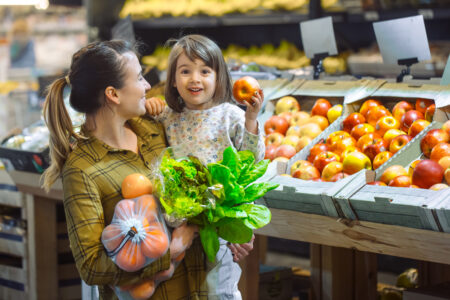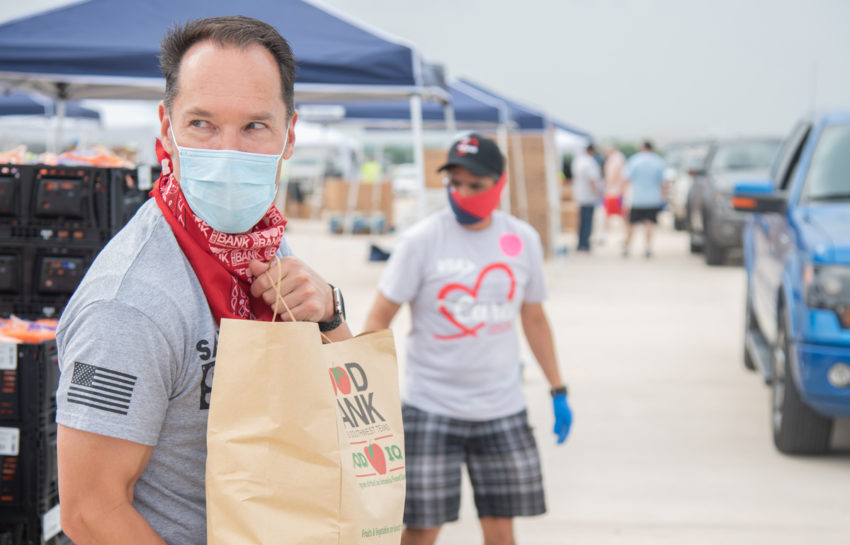
Share On Social!
Eric Cooper knows what it’s like to depend on public assistance programs.
He grew up in a low-income family, relying on free school meals and food assistance to get enough food to eat.
Today, as CEO of the San Antonio Food Bank, Cooper helps families like his.
And with rising amounts of food insecurity amid the coronavirus COVID-19 pandemic, he led the Food Bank to orchestrate a whole new way of operating. An army of volunteers has stepped up to meet the needs of so many, by working in back-to-back shifts and implementing new strategies, such as drive-through pickup lines or COVID-19 preparation kits.
Their efforts have garnered national acclaim and have turned a crisis into a rallying point for those who need it most.
“I think all of us, as human beings find ourselves in times of need — where we need something someone else has, or we can’t do something on our own,” Cooper said. “There is a need to share. There’s a need to serve. There’s a need to give that we all have, also, and it takes having someone else in need for us to be able to fulfill our need.
“I’ve seen people that are broken, discouraged, and feeling like their world is upside down. Take on the burdens of someone else, and all of a sudden, their world becomes recalibrated. They’re able to make it through their own struggles.”
Experiencing Public Food Assistance Personally
Before Cooper would ever set foot inside the San Antonio Food Bank, public food assistance helped his family put meals on the table.
“As a kid, you know, I knew there were times my parents were struggling,” Cooper said. “I remember that I was able to get free meals at school. It wasn’t that I thought that we were in poverty, but you know that was because my parents were together and because I felt loved and supported. We didn’t have a lot, and there were certain sacrifices. But then, you know, in a lot of ways, we were super blessed.”
There are millions of families like this across the United States.
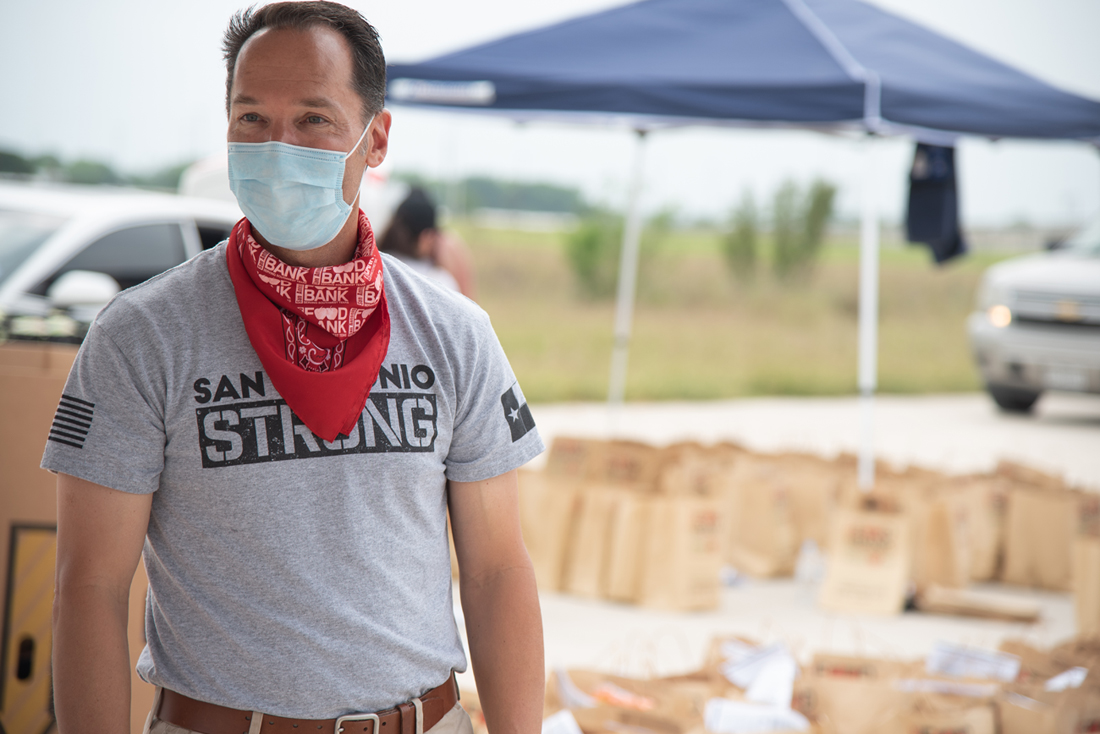
Nationally, 11.1% of families are food insecure, meaning they are without reliable access to a sufficient quantity of affordable, nutritious food. Latino and black households are more likely to suffer food insecurity and hunger (16.2% and 21.2%, respectively). Latinos already lack access to supermarkets and farmers’ markets, while having abundant access to fast food and corner stores, according to a Salud America! research review.
For Cooper, his parents would divorce while he was in high school. This further altered the financial state of his family.
As he continued down the path that led him to where he is today, Cooper began pitching in financially to help keep the house running.
“I took on some expenses for my mom to help her and my little brother and sister,” Cooper said. “Those expenses, those household decisions were tough. Do you pay rent, or do you buy food? Or do you pay the utilities? Or do you pay for sports?
“Those sacrifices and those trades helped me empathize and appreciate the tradeoffs that people make,” Cooper said. “I realized that you shouldn’t be trading off when it comes to your health and your well-being.
“Nutrition and food is a powerful force. Not just the nutrients that food brings us, but the social side of how food brings us to a table and brings us together.”
Running the San Antonio Food Bank
Cooper joined the San Antonio Food Bank when he was selected as the organization’s youngest Executive Director in 2001.
He said a central goal of being the leader of the Food Bank is diminishing the stigma surrounding people’s reliance on the services offered.
“A young man was in our lobby getting food. He was going to school to become a Physician Assistant,” Cooper said. “His class schedule got to a point where he needed to quit working full time and get his last classes done. So, his wife went to work full time, and he was watching the kids while going into school. Eventually, they ran into not having food, and they came to the food bank.”
Cooper recounts how this client expressed feelings of embarrassment about having to use a public service like the Food Bank.
The man went on to say that he felt his father would be ashamed of him.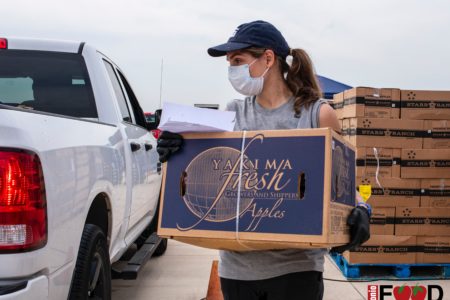
However, Cooper believes America’s views of assistance programs are backward. Before the current pandemic, at least 21% of American citizens—52.2 million people—rely on at least one form of public assistance, according to the U.S. Census Bureau.
That number is only growing with the economic freefall economies around the world are experiencing.
Even without considering the numbers, Cooper said there are better ways to view the need for help, which is what he told the Physician Assistant student and Food Bank client.
“In our society, when you ask for help, it’s is in some way connected to a failure, or you’ve done something wrong, or that you are inadequate in some way,” Cooper said. “So, I told this young man that he should tell his father that he’s on scholarship. When I hear people talk about their kids and getting a college scholarship, it seems to be with a lot of pride.
“So, should it be embarrassing, or why should anyone be ashamed for getting food at the food bank?”
How COVID-19 Is Impacting San Antonio Families and Food Insecurity
The coronavirus outbreak is making life harder for Latino and other families.
Those on the front lines risk virus exposure for a paycheck. Those living in poverty face enormous challenges with losing jobs and access to housing, food, and economic relief. Families who rely on nutrition aid can’t stock up on food. They also can’t buy online. They were in danger of falling deeper into food insecurity and hunger.
Worse, food insecurity is nothing new to the Alamo City. Many of its citizens, including Latinos, live in food deserts. Roughly 14% of San Antonio residents live in food-insecure homes, according to the nonprofit group Feeding Texas.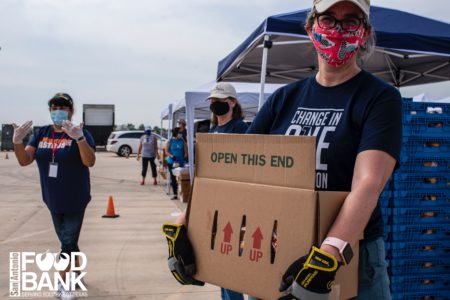
That was before the outbreak of COVID-19. Now things are worse.
Before the virus, the San Antonio food bank typically fed 60,000 people a week. When the illness first struck, it rose to 120,000 people a week, Mother Jones reports. In April alone, over about 400,000 were given food, according to the San Antonio Express-News.
Usually, the food bank gives about 8 million pounds of food over two months, Michael Guerra, a Food Bank spokesman, told the San Antonio Express-News.
Throughout March and April 2020, it gave 17 million pounds of food.
Cooper knew the Food Bank had to respond in a big way.
“I don’t see someone needing food as a failure,” he said. “It’s an opportunity for someone else to really live in their finest hour. When somebody answers a cry, answers the prayer, they really become a hero. I see that [happen] every day.”
How the Food Bank Is Battling the Impacts of COVID-19
First, the Food Bank began to expand the services they either already offered or implemented new ways to meet the needs of San Antonians.
These services include:
- City-wide distribution centers for both vehicles and walkups
- A vast home delivery service
- A wide-reaching rural distribution service
On Thursday, April 9, the San Antonio Food Bank arranged its most significant drive-by distribution of food and supplies. The event generated vast lines of cars, lasted 10 hours, and eventually served 10,000 families. This was a record for the Food Bank’s 40-year history.
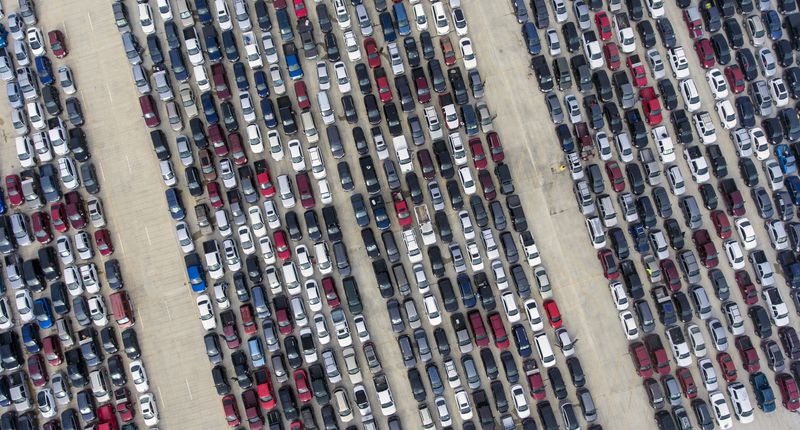
Photos and stories of the event went viral on social media.
Latino author Shea Serrano shared the photos, spurring over $100,000 in donations to the Food Bank. Cooper discussed the event with Hoda Kotb on the Today Show.
The actor Ryan Reynolds shared event photos on Instagram.
“The way people are stepping up matters,” Reynolds wrote in his post. “This is San Antonio Food Bank serving 10,000 households yesterday alone.”
The San Antonio Food Bank now distributes food from its location five days a week. Moreover, they have 18 different Meal Distribution sites for kids. They also do home food deliveries for the homebound, as well as distributions in rural areas. Families just need to pre-register and show up.
The Food Bank provides families with goods, such as:
- non-perishable foods, such as canned vegetables, fruit, beans, rice, soups
- hand sanitizer
- cleaning supplies
- diapers
- pet food
The work continues. On May 5, the food bank provided roughly 1,900 households with food, according to the San Antonio Express-News.
Volunteers in the San Antonio community have stepped up and began to help the lines of people coming to request food to feed their families.
These distribution operations can sometimes require the participation of over 400 volunteers, according to Cooper. Still, he said fear of infection, long hours, and hot days aren’t keeping these folks from stepping up.
“I get to work with the most amazing people in the world, and they’re also dedicated to the mission,” Cooper said. “It’s been incredibly long days, and I don’t know when we saw a day off, but it’s been our privilege and honor to serve. Even if I try to get [these volunteers] to take a break, they don’t want to leave. They want to be here and be a part of this.”
Where Are Food Issues Heading in the Future?
The Food Bank needs more support.
Cooper urges those who can donate their time, money, and food for those in need to do so. Any interested parties can find out more information about opportunities to give back at the Food Bank’s “Ways to Help” page.
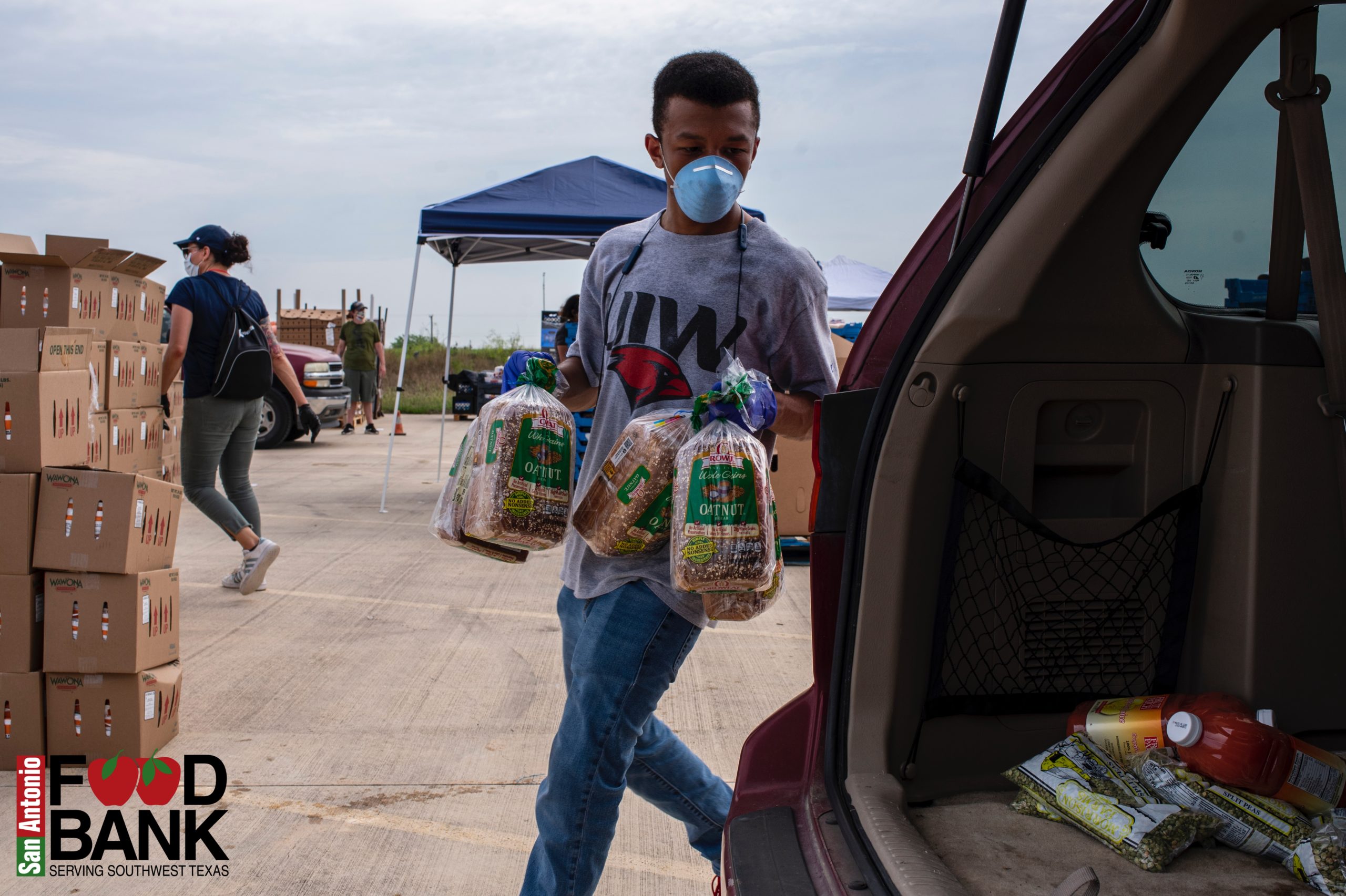 All this work is done with one sole mission in mind: providing one of the most necessities of life to families.
All this work is done with one sole mission in mind: providing one of the most necessities of life to families.
“You spend a lifetime working in this space to try to make sure that that you know the power of the dinner table,” Cooper said. “If that is restored in households—that struggle to have the ingredients to bring them to the table, to be able to provide in some way—that can allow for that magic of food to occur.”
Despite all of the chaos and heartbreak surrounding the pandemic, he hopes that this illness allows people to see the need for systematic change — in order to create a better world tomorrow.
“I think on the other side of the COVID-19 crisis, our cities could move toward being free from inequities,” Cooper said. “A community where all residents have prosperity, less segregation and resources, and more opportunity. It truly will be from neighbor helping neighbor. You know we need healing in our world, but that will take place as we check on the person next door — those for simple things.”
Explore More:
Healthy FoodBy The Numbers
1
Supermarket
for every Latino neighborhood, compared to 3 for every non-Latino neighborhood
This success story was produced by Salud America! with support from the Robert Wood Johnson Foundation.
The stories are intended for educational and informative purposes. References to specific policymakers, individuals, schools, policies, or companies have been included solely to advance these purposes and do not constitute an endorsement, sponsorship, or recommendation. Stories are based on and told by real community members and are the opinions and views of the individuals whose stories are told. Organization and activities described were not supported by Salud America! or the Robert Wood Johnson Foundation and do not necessarily represent the views of Salud America! or the Robert Wood Johnson Foundation.


